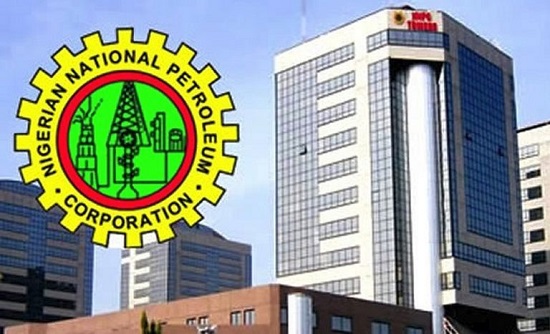This post has already been read 1184 times!
The Nigerian National Petroleum Corporation (NNPC) recorded loses in the region of N551.46b from January 2015 to December 2018.
Details of financial records published on the company’s website revealed that the national oil company repeatedly failed to meet projected profits as its subsidiaries, particularly refineries, running cost at the headquarters and other arms left whopping deficits.
The corporation recorded N267.14b loss in 2015. The figure stood at N197b in 2016. In 2017, data from its financial statements showed N82b in operational losses, while a deficit of N5.46b was posted for January and August in 2018.
While the company has excluded key details such as taxes and figures from the Nigeria Liquefied Natural Gas (NLNG) Ltd, it has continually failed to perform when compared to other national oil companies in Africa and other parts of the world.
Though the firm recorded a trade surplus of N80.57b last year, operating deficit recorded by the nation’s refineries alone rose sharply by 39 per cent to N132.5b in 2018.
When compared to the previous year, the data showed that the refineries posted a loss of N95.09b.
While the corporation earned N2.046t in revenue in 2015, it spent N2.313t leaving a loss of N267.138b. Its corporate headquarters recorded the highest loss of N162.736b, while its product supply and distribution arm, the Pipelines and Products Marketing Company (PPMC) came second with N162.06b loss, followed by a combined loss of N82.09b from its three refineries.
In 2016, the financial and operational report showed that the corporation earned N1.726t, but recorded an expenditure of N1.923t. Losses from its refineries alone totaled N78.95b.
The larger part of the losses made by the company in the past four years came from its corporate headquarters, refineries, and mounting under-recovery from import of petroleum products.
However, while the country is struggling to declare profits, Saudi Arabia’s Arambo posted a net income of $33.8b in the first six months of 2017 alone. Angola’s Sonangol posted a profit of $68m in 2016. Despite the payment of $853m in damages in the third quarter, Brazil’s Petrobras made $7b in 2018.
Most stakeholders, who expressed worry over the situation, said the losses galore would continue without holistic reforms in the nation’s oil sector.
They added that the non-passage of the Petroleum Industry Bill (PIB) remained the major reason behind the poor performance of the state-oil firm.
The former President and Chairman of Council, Chartered Institute of Bankers of Nigeria, Prof. Segun Ajibola, decried the development, insisting that government was backing revenue that falls below cost.
Ajibola said: “If they continue like that, the deficits will continue to grow. But if the reverse happens, then surplus will be generated.”
Also, the Chairman of Tricontinental Group and immediate past President of the Nigerian-American Chamber of Commerce, Chief Olabintan Famutimi, said the opaque system of operation and governance of the corporation remains unacceptable.
“We are using all our money to subsidise consumption by the elites. Government has no business in the refineries, and there is no reason why the government is involved in the importation of petrol. These are scams. They (NNPC) will continue to record loses as long as the government is doing business that it has no business in,” Famutimi said.
He added that government’s continuous interest in the sector is adversely affecting profitability and deterring private sector players.
The former President, Nigerian Association of Petroleum Explorationists (NAPE), Abiodun Adesanya, who said the development has remained a critical one even from previous administrations called for a system that would enshrine transparency and accountability.
“The entities that are just money spending ventures should be scrapped, merged or reduced. You need to know, which entities are important and which ones are not,” Adesanya stated.
An oil and gas services provider, who manages, Mudiame International Limited, Sunny Eromosele urged the current administration to conduct a proper research, and plan an all-inclusive strategy that would address the continuous loses from the group.
Eromosele, who stated that government’s interference and lack of transparency were hindering profitability of the firm, added that the performance of the oil firm was shameful when compared with other national oil companies across the world.
He noted that the corporation owes Nigerians an explanation on the reasons behind the serial loses, adding that government needs to take its hands off the business.
“We should make the NNPC a private business and government should remove its hands. There is so much interference in the NNPC by the government and other people are making money from the business. Why is our case different? Government failed with NITEL until it was unbundled. But the private sector came in and made their money,” Eromosele said.
Executive Director, Centre for Democracy and Development (CDD), Idayat Hassan insisted that an overhaul of the current system being run by the corporation is necessary.
She noted that Nigeria must critically rethink the challenges facing the national oil company, adding that the group was perennially bogged down by transparency, accountability and profitability challenges.
“There is a need to restructure the NNPC. Nigerians need to have a conversation on if they want to maintain NNPC. Subsidy is a good example. This is a government that told us it is not paying subsidy. Then all of a sudden, it introduced subsidy through the back door. The opaque system has remained as it was in previous years, and the promises of unbundling the NNPC have not come to pass,” said Hassan.
[TheGuardian]



